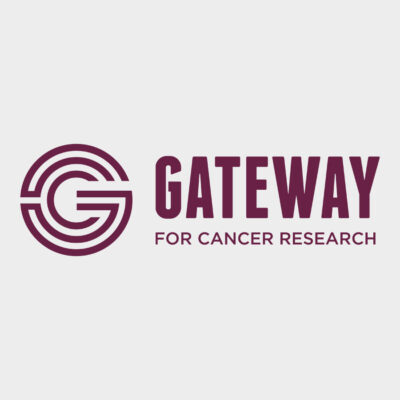Since its founding in 1991, Gateway for Cancer Research has accelerated promising early phase clinical trials to develop novel therapies for all types of cancers. With the aim of bringing breakthroughs to the bedside for courageous patients and their families, Gateway has supported more than 190 clinical trials over the past three decades. In 2021, Gateway awarded three grants totaling more than $1 million to Dana-Farber’s Suzanne Forrest, MD, Jonathan Schoenfeld, MD, MPH, and Sara Tolaney, MD, MPH, chief of the Division of Breast Oncology within the Susan F. Smith Center for Women’s Cancers.
“It is a privilege to support the high-caliber clinical research being advanced at Dana-Farber,” said Michael Burton, president and CEO of Gateway for Cancer Research. “We believe in the power of partnerships at Gateway and we are confident that our collaboration with Dana-Farber will truly make a difference for the patients we serve.”
“We are honored to award and activate these three early phase trials led by clinician-scientists who are passionate and relentlessly focused on cancers where there is a large unmet need,” said Delora Senft, chief program officer of Gateway for Cancer Research.
Forrest is directing her funding toward a phase 2 clinical trial testing combination immune checkpoint therapy in pediatric, adolescent, and young adult patients with INI1-negative tumors, a group of aggressive cancers that are difficult to cure. This trial comes on the heels of a genomic study of such cancers which found that a significant portion of INI1-negative tumors express PD-L1, an immune checkpoint protein that keeps the immune system from recognizing and attacking cancer cells. A phase 1 clinical trial testing nivolumab and ipilimumab, both checkpoint inhibitors, confirmed the treatment combination was safe for pediatric patients. This phase 2 trial will help determine its efficacy in a specific group of cancers that need better treatments.
“There is a pressing need to identify effective treatments for INI1-negative pediatric cancers,” Forrest explained. “With Gateway’s support, we are one step closer to bringing a promising therapy to a particularly vulnerable population.”
With Glenn Hanna, MD, director of the Center for Salivary and Rare Head and Neck Cancers, Schoenfeld is leading a clinical trial for adenoid cystic carcinoma (ACC), a cancer of the salivary glands that can be particularly difficult to treat once it has metastasized. Their team is testing the efficacy of a new therapeutic approach in which early metastatic sites of ACC, prior to widespread metastasis, are locally treated with a targeted form of radiation. The aim of the trial is to ascertain whether such focused and specialized treatment in the early phases of metastasis can prevent the spread of ACC.
“We are profoundly grateful to Gateway for making this trial possible for our patients,” said Schoenfeld. “With their help, we could validate a treatment method that changes the standard management of this disease.”
Tolaney is leveraging her award to determine if immunotherapies are effective against hormone receptor-positive (HR+) breast cancer. She and her colleagues have developed a phase 2 trial that will utilize a novel antibody drug-conjugate called sacituzumab govitecan in addition to immunotherapy for patients whose metastatic HR+ disease expresses PD-L1.
“Patients with HR+ metastatic breast cancer face limited treatment options,” said Tolaney. “Thanks to Gateway, we are able to investigate if immunotherapy, which has been transformative for many other cancers, could answer this unmet clinical need.”



